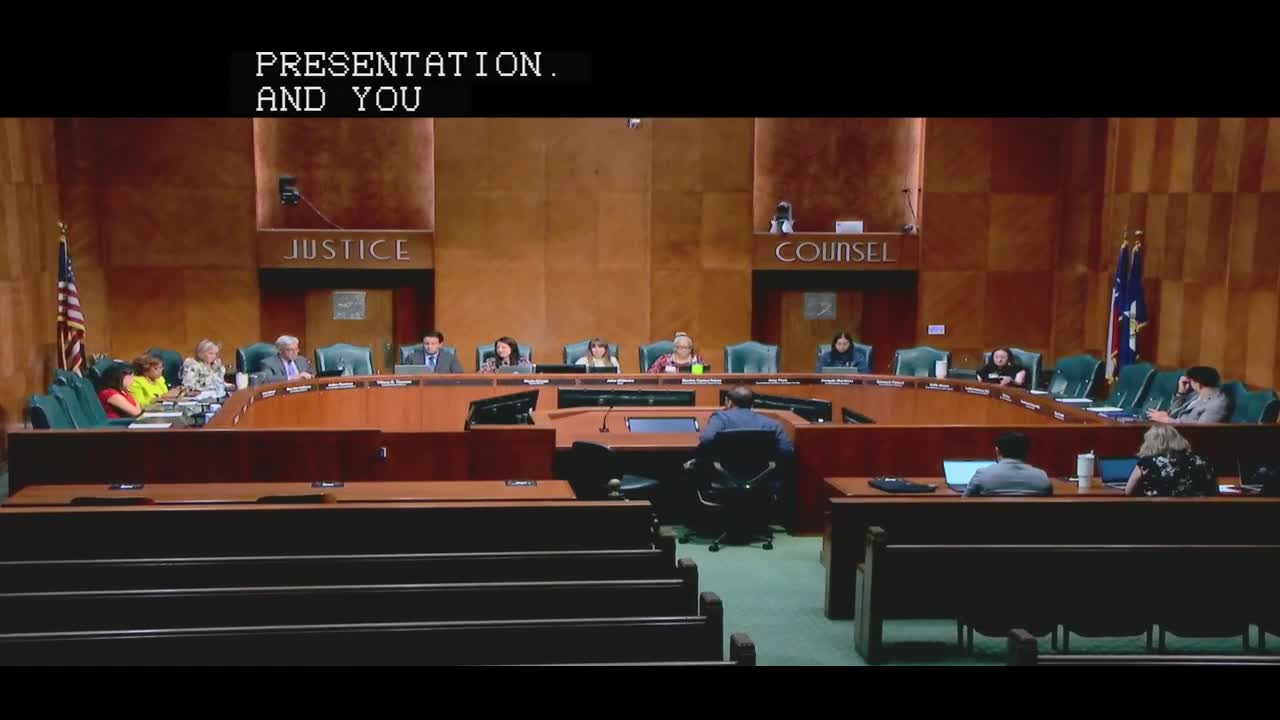Flock Safety makes case for license‑plate network; committee hears praise and privacy concerns from residents
Get AI-powered insights, summaries, and transcripts
Subscribe
Summary
Flock Safety representatives described the company’s license‑plate reader network and how Houston law enforcement uses it; council members praised successes while public commenters raised concerns about oversight, search justification and immigration enforcement access.
Hector Soliman Valdez, director of municipal engagement for Flock Safety, presented a company overview and local program summary to the City Council Public Safety Committee on Oct. 15, describing Flock as a public‑private license‑plate reader and public‑safety platform used by Houston police and local districts since 2021.
Valdez said Flock’s devices and software are owned and controlled by customers, that the company does not sell location data, and that the default retention period for imagery and reads is 30 days (which jurisdictions can shorten or lengthen). He told the committee the company is SOC‑2 and SOC‑3 compliant, that its devices are NDAA‑compliant, and that Flock is integrated with national partners such as the National Center for Missing & Exploited Children (NCMEC) and Mothers Against Drunk Driving (MADD).
Valdez said the Houston network is substantial: Flock launched locally in 2021 and, he said, more than 40 local agencies participate. He cited national network statistics including more than 6,000 communities on the platform, about 15% of reported crimes solved using Flock data nationally, recovery of an estimated $7.4 million in stolen vehicles linked to the network, and more than 2,800 crimes solved daily on the platform nationwide. Valdez described local successes that HPD reports, including recoveries of stolen vehicles and homicide investigations solved in part with plate‑reader leads.
Several council members recounted local examples. Council Member Mary Anne Huffman said a child abducted in her district was recovered “in real time” because of the system and described a River Oaks homicide investigation in which a vehicle switched plates after a murder and was traced through the Flock network. Other council members described stolen‑vehicle recoveries and arrests they attributed to plate‑reader leads.
Committee members asked about operational control and audit procedures. Valdez said HPD is the only agency that can access cameras bought by council districts or businesses; Flock does not access or search customer networks. He added that HPD officers must enter a search reason — typically a case number — when querying the system and that those searches are auditable by administrators.
Several public commenters raised privacy and oversight concerns during the public‑comment period. Alfredo Dominguez said reporting shows many searches logged by officers use generic or non‑specific justifications (for example, “investigation” or keyboard strings such as “ASD”) and argued that the system enables widespread vehicle tracking without adequate policy or consent. Christopher Rivera, appearing virtually and identifying himself with Texas A Right Project and the Riot Houston Coalition, cited reporting that he said showed two‑thirds of HPD Flock searches were not tied to a specific crime or investigation, warned of potential misuse by immigration authorities, and urged the City to cancel a $6.4 million contract with Flock and remove deployed cameras.
Valdez acknowledged retention and access policies are set by local jurisdictions and reiterated Flock’s standard 30‑day retention but said cities such as San Jose and Oakland have adopted longer windows. He described additional Flock products — drone first responders, audio‑detection sensors for gunshots and screeching tires, and analytics for traffic and planning — and said those tools can be used by multiple city departments beyond policing.
Vice Chair Jackson and other council members asked Flock to provide specific Houston‑area success stories tied to council districts; Valdez said HPD project managers could supply district‑level examples and offered to follow up. The committee did not take any formal action on contracts or procurement during the meeting.
